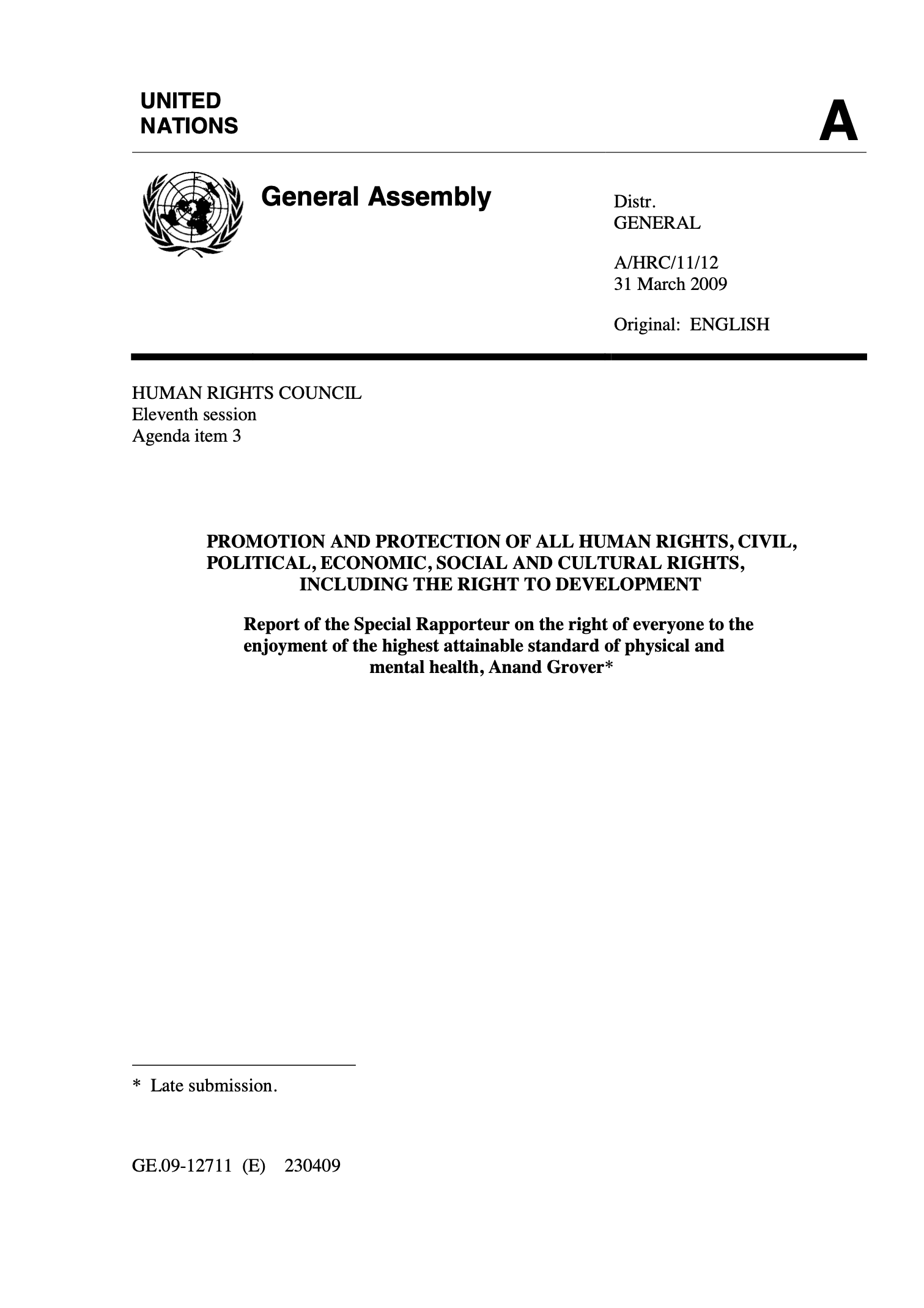2009 Report of the Special Rapporteur on the right to health
Analysis of precedential value
The special rapporteur on the right of everyone to the enjoyment of the highest attainable standard of physical and mental health is a human rights expert mandated to report and advise on this human right. This mandate was created by the Commission on Human Rights in April 2002 and has been periodically renewed since. This report constitutes an authoritative source of expert precedent for the meaning and significance of key language. The incumbent at the time of this report’s release was Anand Grover (India).
The report is based on Mr. Grover’s exchanges with “State representatives, the World Health Organization (WHO), the Joint United Nations Programme on HIV/AIDS (UNAIDS), the United Nations Populations Fund (UNFPA) officials and several civil society organizations,” and the Committee on the Elimination of Discrimination Against Women, and attendance at a series of AIDS- and rights-related conferences.
Used as precedent
access to health products
“Flexibilities were included in TRIPS to allow States to take into consideration their economic and development needs. States need to take steps to facilitate the use of TRIPS flexibilities.” (paragraph 96)
“The Special Rapporteur therefore recommends that developing countries and LDCs should review their laws and policies and consider whether they have made full use of TRIPS flexibilities or included TRIPS-plus measures, and if necessary consider amending their laws and policies to make full use of the flexibilities.” (paragraph 97)
“Developing countries and LDCs should establish high patentability standards and provide for exclusions from patentability, such as new forms and new or second uses, and combinations, in order to address evergreening and facilitate generic entry of medicines.” (paragraph 100)
“Developing countries and LDCs should adopt the principle of international exhaustion and provide for parallel importation with simplified procedures in their national laws.” (paragraph 101)
“Developing countries and LDCs need to incorporate in their national patent laws all possible grounds upon which compulsory licences, including government use, may be issued. Such laws provide straightforward, transparent procedures for rapid issue of compulsory licences. There is also a need to revisit the 30 August decision and provide for a simpler mechanism.” (paragraph 102)
“Developing countries and LDCs should specifically adopt and apply pro-competition measures to prevent the abuse of the patent system, particularly in regard to access to medicines.” (paragraph 103)
“Developing countries and LDCs should not introduce TRIPS-plus standards in their national laws. Developed countries should not encourage developing countries and LDCs to enter into TRIPS-plus FTAs and should be mindful of actions which may infringe upon the right to health.” (paragraph 108)
access to health products, key population and community leadership
“LDCs and developing countries should actively promote the participation of individuals and communities in decision-making processes relating to TRIPS and TRIPS flexibilities and conduct impact assessments of the same.” (paragraph 107)
